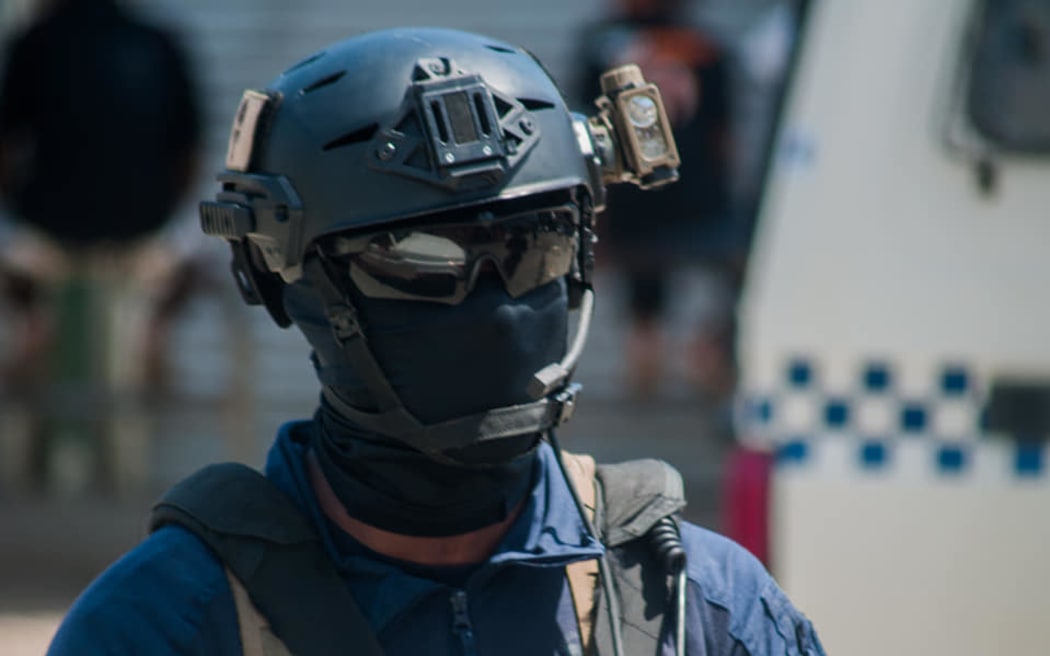World
Solomon Islands Considers Establishing Military Amid Regional Tensions

The Solomon Islands government is actively exploring the establishment of its own military, a move that would position it as the fourth country in the Pacific region to have formal armed forces. This consideration comes amidst rising geopolitical tensions in the area, prompting discussions among parliamentarians about the implications of such a significant development.
National Security Minister Jimson Tanagada stated in parliament that the initiative is still in its early stages. He emphasized that this is “not an attempt to militarise our nation,” but rather a “long-term nation-building effort aimed at enhancing Solomon Islands’ resilience, sovereignty, and self-reliance.” Tanagada acknowledged the urgency of addressing evolving security challenges, although he did not specify a timeline for the military’s formation.
The backdrop of this proposal is the Solomon Islands’ turbulent history, particularly the civil unrest at the turn of the century, during which the police’s para-military unit was disbanded following the misuse of firearms against civilians. It took over ten years for public trust to be restored sufficiently to begin rearming the police force.
Matthew Wale, the Leader of Opposition, expressed cautious support for the government’s exploration of a military, urging a consideration of past lessons. He referenced events in Fiji and Papua New Guinea, where military involvement in political matters led to instability. Wale highlighted the importance of including parliamentarians from across political lines in shaping this critical issue, stating, “This issue is so critical that us as representatives must help to together, inform it, influence it, mould it, shape it.”
Former Prime Minister Manasseh Sogavare, who initially proposed the idea during a trip to China in 2023, reiterated the importance of government control over any armed force. He remarked on the necessity of discussing regional security issues, particularly as Papua New Guinea is reportedly negotiating a peace treaty with the United States that could allow American military assets to operate in the region without prior permission. “These are serious matters that we need to discuss about the security of the region,” Sogavare said.
Prime Minister Jeremiah Manele recognized the potential benefits of a military force, particularly in responding to sub-regional crises. He noted that while Papua New Guinea and Fiji have established defense forces, both Solomon Islands and Vanuatu currently do not, creating a gap in regional security discussions.
Nevertheless, Manele cautioned that the costs associated with establishing a military must not detract from the funding needed for the Royal Solomon Islands Police Force, which currently handles national defense and security. “It’s not only about the numbers but also the cost in terms of sustaining these arrangements,” he stated.
Supporters of the military initiative believe it will enhance the country’s security and contribute positively to the wider region. Yet, opinions among constituents remain to be fully gauged as the discussions progress. As the Solomon Islands navigates these complex considerations, the balance between national security and historical lessons will be paramount in shaping its future military landscape.
-

 World4 months ago
World4 months agoTest Your Knowledge: Take the Herald’s Afternoon Quiz Today
-

 Sports4 months ago
Sports4 months agoPM Faces Backlash from Fans During Netball Trophy Ceremony
-

 Lifestyle4 months ago
Lifestyle4 months agoDunedin Designers Win Top Award at Hokonui Fashion Event
-

 Entertainment4 months ago
Entertainment4 months agoExperience the Excitement of ‘Chief of War’ in Oʻahu
-

 Sports4 months ago
Sports4 months agoLiam Lawson Launches New Era for Racing Bulls with Strong Start
-

 World5 months ago
World5 months agoCoalition Forms to Preserve Māori Wards in Hawke’s Bay
-

 Health4 months ago
Health4 months agoWalking Faster Offers Major Health Benefits for Older Adults
-

 Lifestyle4 months ago
Lifestyle4 months agoDisney Fan Reveals Dress Code Tips for Park Visitors
-

 Politics4 months ago
Politics4 months agoScots Rally with Humor and Music to Protest Trump’s Visit
-

 Top Stories5 months ago
Top Stories5 months agoUK and India Finalize Trade Deal to Boost Economic Ties
-

 Health2 months ago
Health2 months agoRadio Host Jay-Jay Feeney’s Partner Secures Visa to Stay in NZ
-

 World5 months ago
World5 months agoHuntly Begins Water Pipe Flushing to Resolve Brown Water Issue









